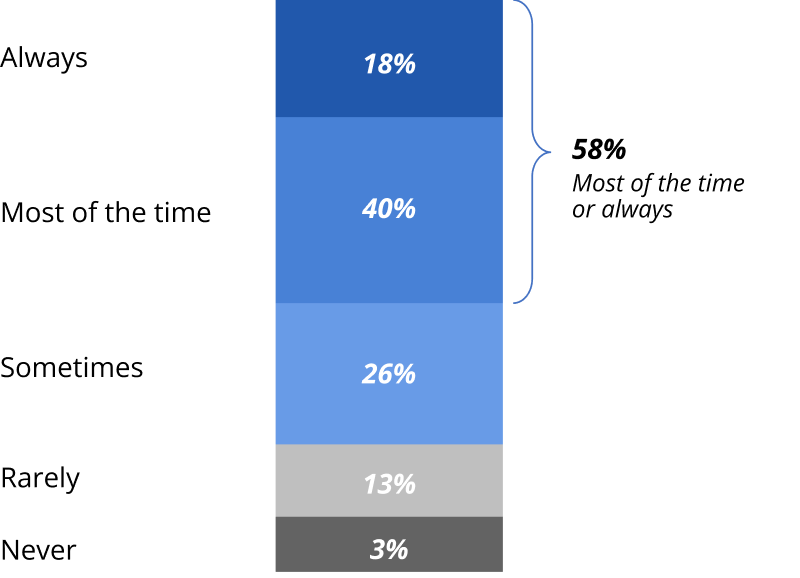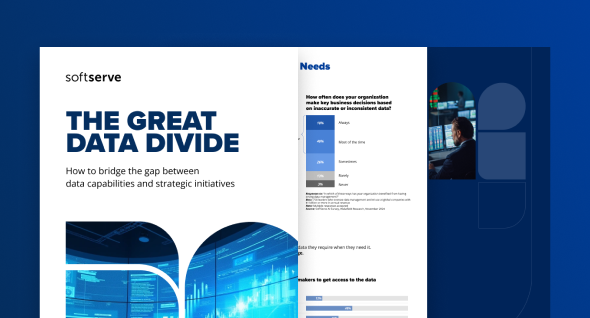Why Strong Data Foundations Are the Key to Future Innovation
Companies worldwide are unlocking new opportunities by harnessing advanced data practices. Yet many still struggle to create business value with their data. Businesses that focus on effective data management reap significant rewards including creating new revenue streams. Those with weaker data strategies are less likely to achieve these results.

To understand why some companies lag, we partnered with Wakefield Research to conduct a study of 750 business and IT leaders from billion-dollar companies. Some of the results were startling: 58% of respondents admitted their companies continue to make business-critical decisions based on inaccurate or incomplete data –– most of the time if not always.
What’s hindering these companies’ data strategies? What are leaders doing right? Read on to learn more.
Creating a strategy that stands out
How can businesses get the most out of their data? The answer lies in refining their data strategies and aligning them with clear business objectives. For example, 46% of data-mature companies reported opening new revenue streams. Additionally, our research found that companies with mature data practices –– with an emphasis on data quality, governance, accessibility, and strategy –– are better equipped to implement advanced technologies like artificial intelligence (AI).
This reflects a critical truth about today’s business landscape — data maturity isn’t just a competitive advantage; it’s the foundation of sustainable growth. A robust data foundation isn't just an operational necessity; it’s an innovation enabler.

Avoid missteps in new technology adoption
However, many companies fail to recognize this. Instead, they are rushing to adopt emerging trends like Generative AI without fostering the necessary data maturity. A staggering 73% of business and tech leaders said their companies had allocated funds to trendy AI initiatives at the expense of more essential data and analytics investments.
Part of the problem lies with leadership
Leadership plays a pivotal role in prioritizing data initiatives. Yet, our research revealed a concerning gap between leadership understanding and action. While 78% of VPs and 61% of directors believe their organization’s investment priorities suffer due to leadership’s lack of understanding about the value of data, only 44% of C-level executives recognize this gap. Bridging this disconnect could be essential for better prioritization of data investments and realizing the full value of analytics.

Looking ahead
Organizations that develop mature data strategies today will lead the charge in innovation tomorrow. Our research indicates that 42% of data-mature businesses plan to significantly increase their data investments in 2025 — proof of their commitment to staying ahead of the curve.
Build your future on strong data foundations
The benefits of robust data practices are clear. It behooves companies to take the time to align their data strategies with their business objectives –– ensuring adequate funds for sustained investment.
Are you ready to harness the power of data maturity and position your organization for long-term success? Learn more with insights and best practices in our full research paper.


